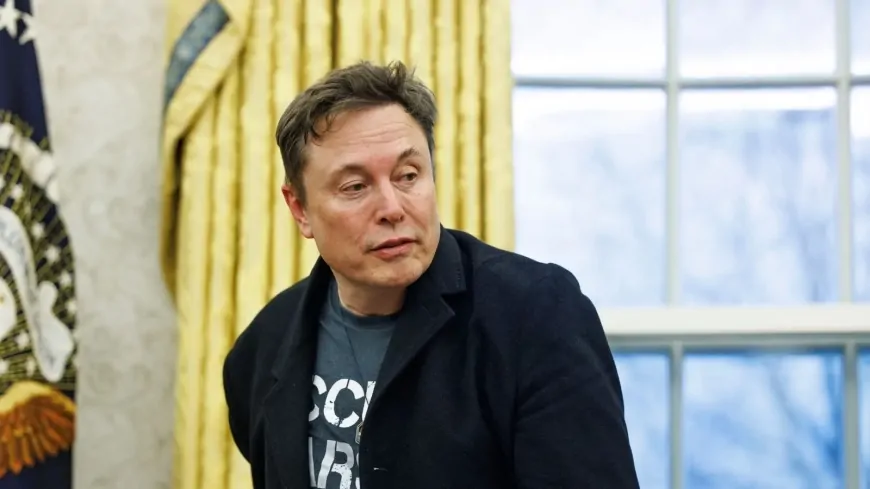White House Faces Growing Questions Over Elon Musk’s Government Role and Business Ties
Elon Musk's advisory role in the Trump administration raises concerns about conflicts of interest. Critics demand transparency on his business ties and influence.

Elon Musk, the billionaire entrepreneur known for leading companies like Tesla and SpaceX, is now serving as a government adviser in President Donald Trump's administration. Tasked with improving government efficiency, Musk's appointment has sparked growing concerns about transparency and potential conflicts of interest. Critics argue that his extensive business interests, which frequently intersect with government contracts, present ethical challenges that require close scrutiny.
Lack of Conflict of Interest Waiver Raises Questions
Unlike other government advisers who have received formal conflict of interest waivers, there is no public record indicating Musk has pursued or been granted one. A waiver would detail the steps Musk is taking to mitigate conflicts and ensure his government role is not used to benefit his businesses. White House press secretary Karoline Leavitt has insisted that Musk is complying with all federal ethics laws and has committed to avoiding any conflicts.
However, ethics experts emphasize that a clear waiver would provide reassurance to the public. "A conflict of interest waiver provides transparency and accountability," said Walter Shaub, former director of the U.S. Office of Government Ethics. "Without it, the public has no way to gauge whether Musk's government influence is serving the public good or his corporate interests."
Business Entanglements and Federal Contracts
Musk’s companies have longstanding ties to the federal government. SpaceX has secured billions in government contracts for space missions and satellite launches. Starlink, his satellite internet service, is increasingly used in both military and civilian capacities. Additionally, Tesla has benefited from billions in government subsidies and tax credits to support electric vehicle production and renewable energy projects.
These financial ties have fueled concerns about Musk’s ability to remain impartial in his government role. Further complicating matters is Musk’s reliance on China for Tesla’s manufacturing and market share. Given rising geopolitical tensions, his involvement in sensitive government discussions could pose national security risks.
Reports indicate Musk attended a Pentagon briefing where China was a key topic of discussion. While President Trump dismissed concerns about Musk's access to sensitive information, calling him a "great patriot," critics argue that Musk's economic interests could still create potential vulnerabilities.
Government Advisers and Ethical Standards
Government advisers like Musk are brought into government roles for their expertise without relinquishing their private-sector positions. While this approach can inject valuable knowledge into policymaking, it also poses ethical risks. Federal law prohibits advisers from participating in matters where they have a direct financial interest, unless a waiver is granted.
In contrast to Musk’s opaque situation, David Sacks, an AI and cryptocurrency adviser in the Trump administration, received a conflict of interest waiver. The 11-page document, publicly disclosed through the White House’s transparency portal, outlines the limitations placed on Sacks and the steps he took to divest certain assets.
"Sacks' waiver is a clear example of how the system should work," said Virginia Canter, chief ethics counsel at Citizens for Responsibility and Ethics in Washington. "It offers the public insight into how conflicts are managed. The lack of a similar waiver for Musk leaves the administration vulnerable to accusations of favoritism and lack of accountability."
Calls for Greater Transparency
Transparency advocates are calling on the White House to disclose any existing waivers or provide clarity on Musk's ethical commitments. They argue that maintaining public trust in government decision-making requires accountability, especially when influential figures like Musk hold key advisory roles.
Lawmakers have also voiced concerns. Democratic Senator Elizabeth Warren has previously criticized Musk’s financial entanglements and called for stricter oversight of private-sector leaders in government roles. "Public service is about serving the people, not personal interests," Warren said in a recent statement. "The American people deserve transparency."
Critics argue that without visible oversight, the risk of blurred lines between Musk’s government role and his business interests could persist. Lawmakers and ethics experts are pushing for the White House to establish clear guidelines to ensure Musk's advisory position remains free from undue influence. The demand for transparency is growing, with calls for regular disclosures of his involvement in policy discussions and detailed reports on any interactions tied to his business ventures.
Amid increasing public concern, the White House faces mounting pressure to demonstrate that Musk's contributions are in the public’s interest rather than serving private financial gains. Whether the administration chooses greater transparency or maintains its current course will significantly shape public confidence in its commitment to ethical governance.
Also Read: Musk Faces Pressure to Prove He Can Lead Tesla While Managing DOGE Role
































































